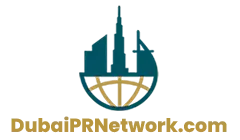
• Emirati patient suffering from an enlarged blood vessel in the abdomen and 6 other comorbidities, saved at Medcare Hospital Al Safa using a rare, advanced surgical procedure • Endovascular Aneurysm Repair has revolutionized the treatment of aneurysms, providing patients with reduced pain, faster healing, and improved outcomes Dubai – April 18, 2023: The life of an 80-year-old Emirati patient with multiple chronic conditions has been saved with an innovative surgical procedure at Medcare Hospital Al Safa. The patient, when admitted to the hospital, was suffering from a critical condition, called an abdominal aortic aneurysm. This is a balloon-like bulge, called an aneurysm, in the aorta, the main artery that carries blood from the heart to the rest of the body. A team of surgeons at Medcare Hospital conducted a rare, advanced surgical procedure called Endovascular Aneurysm Repair (EVAR) to successfully repair the swelling without an open incision, resulting in less pain, improved outcomes, and faster healing. The patient had been suffering from a symptomatic infrarenal (below the kidneys) abdominal aortic aneurysm and was brought to the hospital after a sudden increase in abdominal pain. Abdominal aortic aneurysms are not common and occur in 2 to 13 per cent of male patients above the age of 65 years. If the aneurysm bursts it can be life-threatening for the patient. Speaking on the case, Dr. Saher Arour, Vascular Surgery Consultant at Medcare Hospital Al Safa, said, “The patient presented with numerous risk factors that made his case very complicated and urgent to attend. Given his extensive medical history, we opted for the EVAR procedure to prevent the aneurysm from bursting. Despite these precautions, this procedure was challenging with many associated risks considering the patient’s age and condition.” In addition to the abdominal aortic aneurysm, the patient also suffered from numerous long-term health risks including chronic heart and renal (kidney) conditions, hypertension, type 2 diabetes, high cholesterol, iron deficiency anaemia, and other challenges. He also had an umbilical hernia, which is an abnormal bulge at the belly button, and overgrown prostate blocking the flow of urine. Dr. Saher said, “We considered the EVAR to be the optimal course of treatment for this patient due to his multiple comorbidities and health risks. Furthermore, we had to rule out the option of open surgical resection because of the high risk of death.” The open surgical resection is a medical procedure that involves the replacement of the aneurysm with a graft. Unlike an open surgical resection, EVAR is a minimally invasive procedure that has revolutionized the management of abdominal aortic aneurysms in the past two decades. The procedure uses small punctures and sophisticated instruments to repair bulges in blood vessels in the abdominal area to prevent the swollen blood vessel from rupturing. According to Dr. Saher, the EVAR can provide immense benefits for the patient compared to open surgical resection. “It is a gentler procedure that leads to less blood loss, discomfort during recovery, and shorter hospital stays. Additionally, patients can return to their daily activities faster and have a reduced risk of complications, such as heart attack and death.” “In spite of these precautions, the case presented various complications”, he added. “The patient had renal failure, making a standard EVAR procedure impossible due to not being able to use contrast angiography, which is very important for planning and implantation of the graft. Thus, we had to use CO2 angiography, an alternative to conventional iodinated contrast angiography, instead as the patient would have been at high risk with normal angiography.” He further said, “This procedure has a high success rate, however, in cases like this, there is always a chance for complications arising, such as bleeding, infection, and kidney failure.” The doctors at Medcare performed the procedure successfully, despite the severe condition of the patient and the various risk factors. The patient got discharged in good general condition two days after the surgery. Speaking on the experience, the patient remarked, “I am grateful to Dr. Saher and the Medcare team for the excellent care given to me at the hospital. I have been suffering from multiple diseases for a long time. To be able to feel comfortable again is a daily reminder for me to cherish every moment and aspect of my life. The journey of recovery has been arduous but ultimately rewarding.” Regarding the recovery process following the EVAR procedure, Dr. Saher said, “The aftermath can vary depending on the patient's condition and the extent of the repair. In most cases, patients can expect to spend a day or two in the hospital for monitoring before being discharged to recover at home.” “With proper care and follow-up, patients who undergo an EVAR can typically expect to return to their normal activities within a few weeks or months of the procedure. Regular check-ups with a healthcare provider will be necessary to monitor the patient's progress and ensure that the aneurysm remains stable,” Dr. Saher said. The future of EVAR in healthcare looks promising as it continues to advance with new technology and techniques. EVAR has the potential to become the standard of care for many patients with the ability to treat swellings in the blood vessels in a minimally invasive way.
| 
